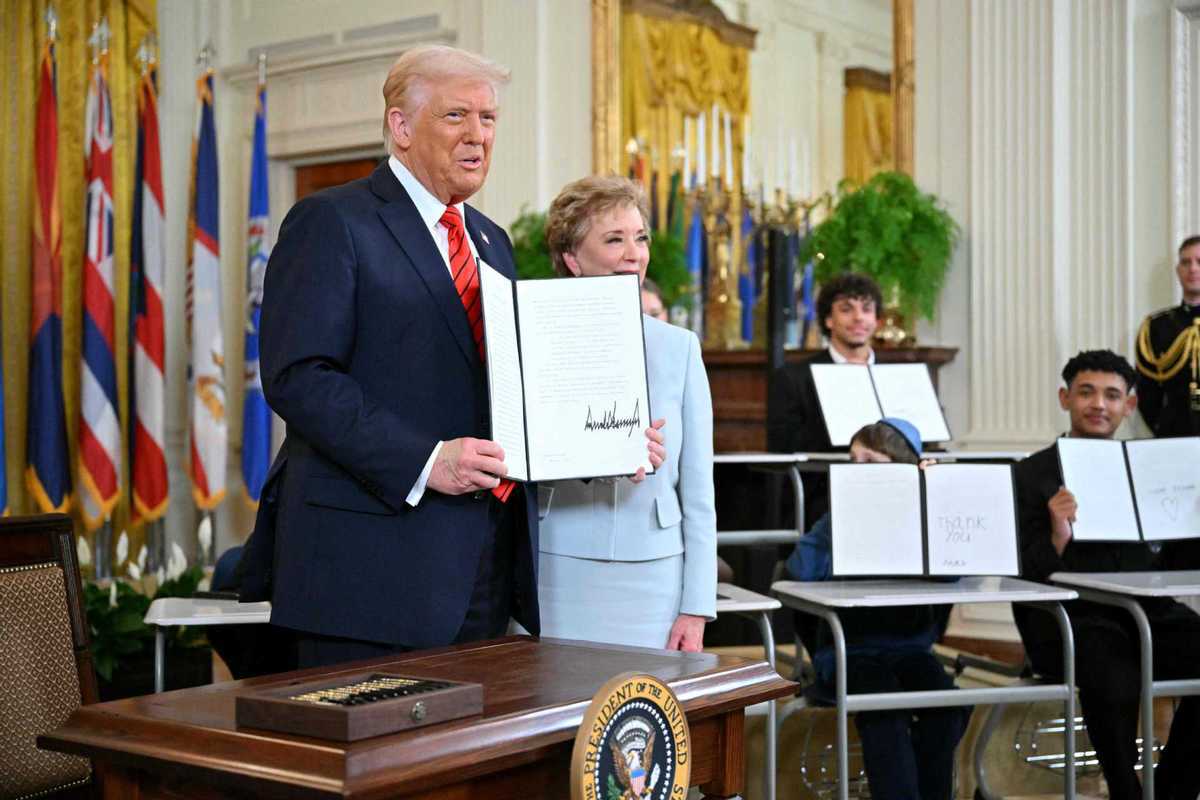Weaponization of university funding harms free expression


Three US federal agencies, namely the Department of Education, the Department of Health and Human Services, and the General Services Administration, jointly issued a statement, on Monday, announcing a review of $255.6 million in contracts between Harvard University, its affiliated institutions, and the federal government, as well as a $8.7 billion multiyear federal grant commitment.
This move is widely seen as part of a broader action by the US administration. Earlier, on March 7, the administration revoked $400 million in federal grants and contracts to Columbia University, citing the university's failure to protect Jewish students from harassment during campus protests against Israel's actions in Gaza last year. That order too came from the Department of Health and Human Services, the General Services Administration, and the Department of Education.
These actions have sparked intense debates across the United States. Supporters argue these are necessary steps to curb what they see as "far-left extremism" in US universities. However, critics condemn the moves as excessive overreach, warning that they "undermine academic freedom and free speech".
In a signed article in The Atlantic on March 19, Christopher Eisgruber, Princeton University president, wrote that the US administration's recent "attack" on Columbia University presented "the greatest threat to American universities since the Red Scare of the 1950s".
On Monday, the American Association of University Professors and the American Federation of Teachers sued the Trump administration for the cancellation of $400 million in federal funding to Columbia. Leveraging financial assistance to the University "underscores the threat to academic freedom", they said.
Calling for an end to the Palestine-Israel conflict and sympathy for the sufferings the Jewish people have undergone in history are compatible and often interlinked, both arising out of a common concern for humanity. While it is absolutely necessary to curb anti-Semitic voices on campus and elsewhere, those who brand calls for peace in the Middle East as anti-Semitism have actually mixed up the two concepts, which in turn leads to disparity, antagonism, and huge divides in universities.
An article in The New York Times on restricting funding to Columbia University quoted Ilana Cohen, a Jewish woman and recent Barnard graduate, as saying she found it hard to believe "they're acting out of care for Jewish students".
"In the past year, I have felt that Jewish voices on this campus have been treated like a pawn in a political game," she said.
The misuse of anti-Semitism to include voices calling for peace and stopping the bloodshed in Gaza is unfair to those being wrongly blamed, in fact even to the Jewish people and to the universities that feel their academic freedom is being violated.
The way the US administration is interrupting normal functioning at Columbia University and Harvard University, namely by cutting or threatening to cut funding, also raises significant concerns about academic freedom. While federal oversight of funding is not unusual, such actions can have a chilling effect on research, discourse, and institutional autonomy. If funding decisions are influenced by political motivations, universities may feel pressured to self-censor or align their policies with government expectations, rather than fostering open academic inquiry.
The move is also part of a broader pattern of scrutiny of elite institutions. Critics say that withholding funds based on perceived political or social stances will undermine the core principles of intellectual independence. While universities must ensure accountability and prevent even an iota of racism from creeping into campuses, the weaponization of funding risks eroding trust in higher education and weakening free expression of thought — a fundamental pillar of modern societies.


































